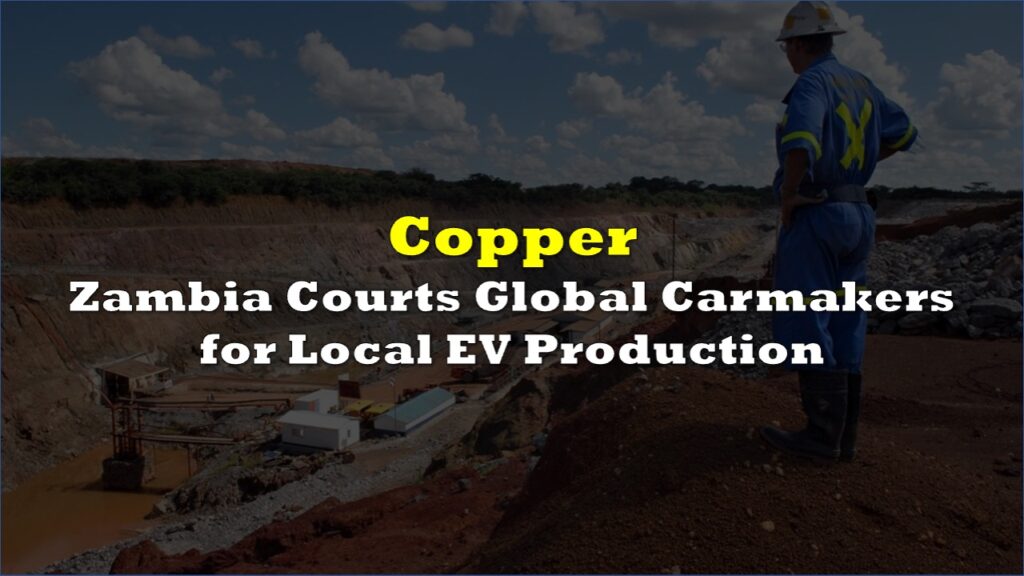The rapid rise of artificial intelligence is transforming industries worldwide, but it may also create an unforeseen consequence: a critical shortage of copper.
Copper, an essential metal in electrical infrastructure and clean energy technologies, is expected to face unprecedented demand in the coming decades, driven in part by the energy-intensive needs of AI applications. BHP, the world’s largest mining company by market capitalization, recently warned of a significant strain on copper supplies as AI and other technologies expand.
Copper in AI and clean energy
Copper is a critical component in many industries, especially as the world transitions to cleaner energy sources. It is widely used in electric vehicles, power cables, wind turbines, and solar farms, all of which are necessary to meet global net-zero carbon targets. But the increasing deployment of AI is poised to further accelerate this demand.
Vandita Pant, Chief Financial Officer at BHP, shared in an interview with the Financial Times that AI and data centers, key components of the AI ecosystem, will drive a substantial increase in copper consumption.
“Today, data centers are less than 1 per cent of copper demand, but that is expected to be 6 to 7 per cent by 2050,” she said. “There is a lot of copper in data centers.”
The energy consumption associated with AI, particularly in data centers, is expected to rise sharply as AI-driven computing becomes more prevalent. These data centers rely on copper not only for their power supply but also for critical cooling systems and to connect processors within the center. As AI applications grow more sophisticated, the copper-intensive infrastructure needed to support them will also grow.
Soaring demand
BHP predicts that global copper demand will rise to 52.5 million tonnes per year by 2050, up from 30.4 million tonnes in 2021 — an increase of more than 70%. This surge in demand will be driven not only by AI but also by the broader transition to clean energy technologies.
Yet the looming copper shortfall has already prompted a scramble to secure access to copper supplies. In recent months, BHP attempted a £39 billion bid for London-listed Anglo American, a major player in the mining sector, though the deal ultimately fell through.
Undeterred, BHP continues to seek new copper reserves, paying $3 billion in July to acquire a stake in Filo Mining, which holds significant copper prospects in South America. Other mining companies, like Canada’s Lundin Mining, are also ramping up efforts to secure copper resources.
Despite these efforts, analysts anticipate a global shortfall of copper in the medium to long term. Many warn that copper prices could skyrocket if demand continues to outpace supply, leading to what BHP has called a “fly-up” pricing regime. This scenario, which could emerge by the late 2020s, would see copper prices surge dramatically as industries scramble to meet their needs.
While BHP and other major mining companies are bracing for a copper shortage, some analysts caution against overconfidence in long-term forecasts.
“We are trying to predict the future of a market that we don’t really know that much about,” said one analyst, reflecting on the unpredictable nature of AI’s trajectory. “We are at the dawn of AI, so how much AI will the world be using in 2050? We don’t have any idea.”
Compounding this uncertainty are current market conditions, particularly in China, which accounts for more than half of global copper consumption. Weak demand from China has caused copper prices to fall by 15% from their peak earlier this year, with copper currently trading at around $9,207 per tonne. The copper market is expected to remain in surplus for the next few years due to sluggish Chinese demand, but BHP expects the situation to reverse by the late 2020s as AI and clean energy technologies accelerate.
AI and commodities
AI is not only changing industries; it is also reshaping global demand for key commodities like copper. AI’s rise means more data centers, which require vast amounts of energy to function, leading to an increase in the need for copper-based infrastructure.
“Data centers themselves are becoming incrementally less copper-intensive, but getting the electricity to them, that is copper-intensive,” said Colin Hamilton, a commodities analyst at BMO Capital Markets.
Cooling systems within data centers are another major copper sink. AI-powered systems tend to generate more heat than conventional computing, meaning advanced cooling technologies, which rely heavily on copper, are crucial to maintaining operational efficiency.
However, predicting exactly how much copper the AI revolution will consume is difficult. While companies like BHP are preparing for a surge, there are still many unknowns about how much AI will permeate industries and how technologies will evolve to address the high energy consumption associated with AI computing.
Information for this briefing was found via Financial Times and the sources mentioned. The author has no securities or affiliations related to this organization. Not a recommendation to buy or sell. Always do additional research and consult a professional before purchasing a security. The author holds no licenses.









